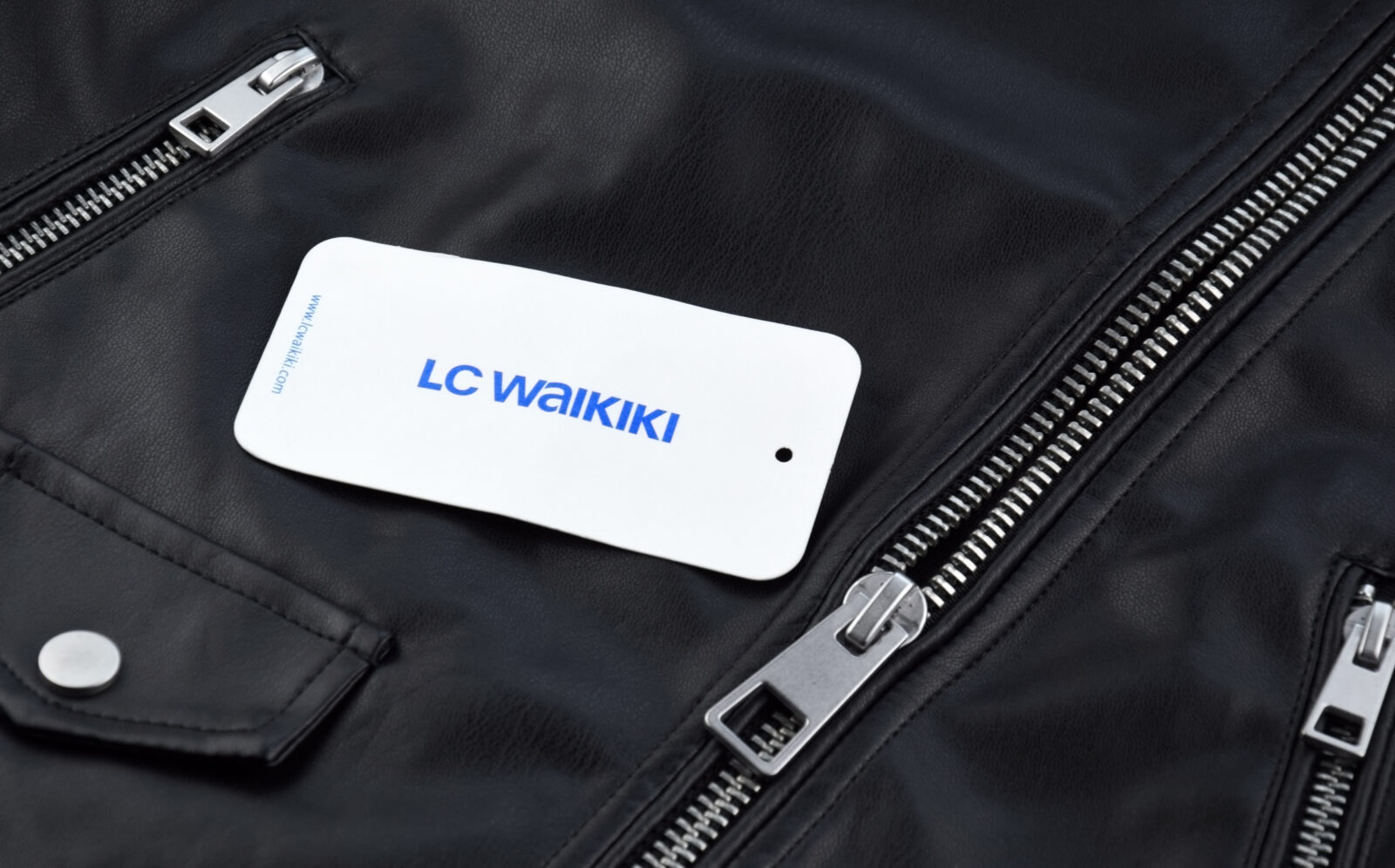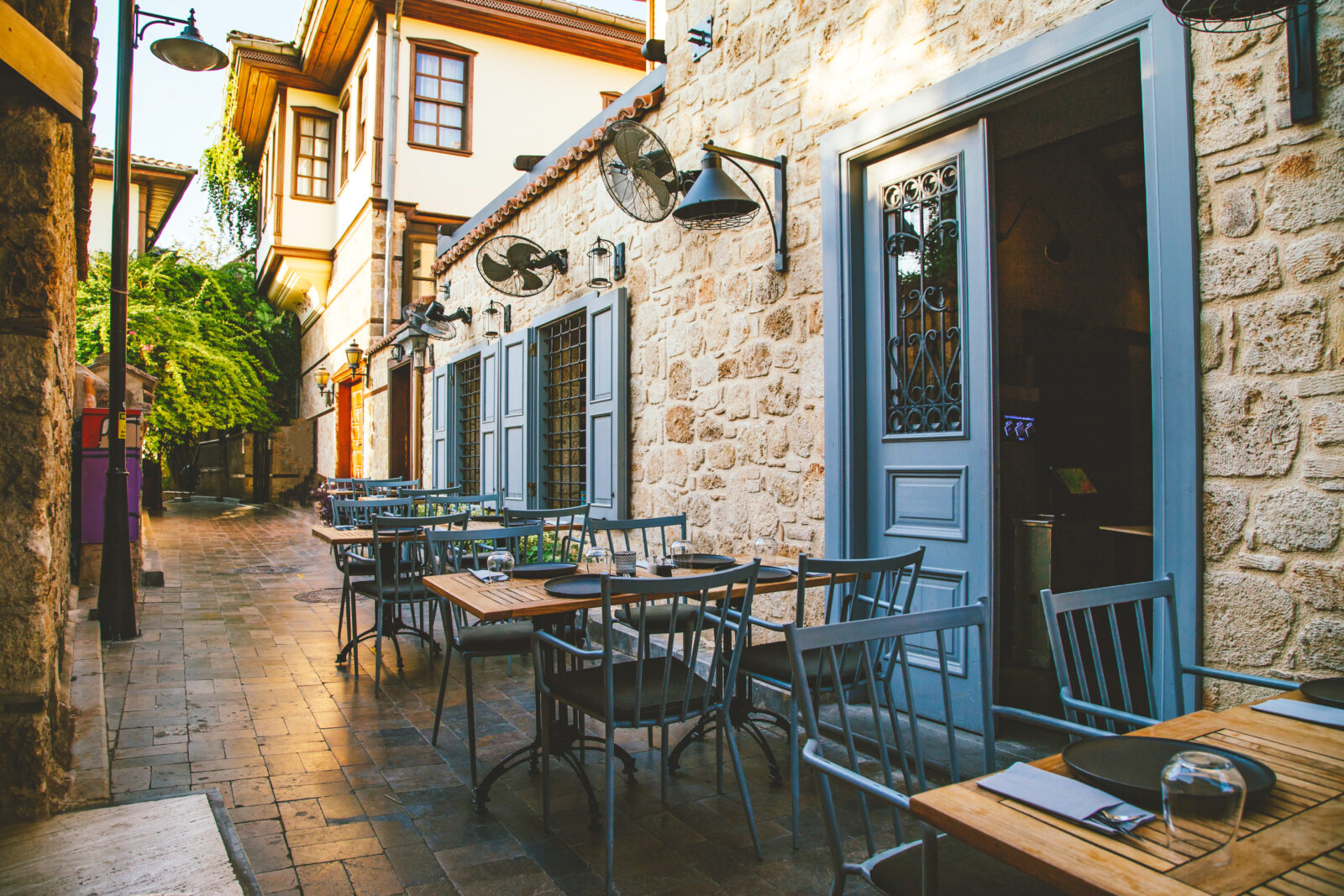Turkish brands dominate the global market, gaining widespread recognition across the world.
From textiles to technology, these brands showcase Türkiye’s craftsmanship, quality and innovation. They lead by blending traditional expertise with modern trends, making a strong impact in various industries.
Türkiye, with its rich history and strategic location between Europe and Asia, leads in multiple sectors. This article highlights key Turkish brands that have expanded beyond Türkiye’s borders and explores how they achieved success in the global market.
Why Turkish textile labels lead internationally
The textile industry plays a significant role in putting Turkish companies on the global stage. Türkiye’s textile sector, rooted in centuries-old traditions, has grown to become one of the world’s largest garment producers. Several Turkish fashion brands have used this expertise to establish themselves across continents.
These labels, popular in Europe, North America, Asia and the Middle East, focus on affordability without sacrificing quality or style. This approach makes them highly competitive in international arenas.

Turkish brands gaining global recognition through innovation and affordability
Turkish brands, including Mavi and LC Waikiki, have carved a unique niche in the global market by offering a blend of quality and affordability. While companies in other regions often prioritize luxury or fast fashion, Turkish enterprises have found success by delivering both. This strategic balance has allowed them to expand rapidly in both established and emerging markets.
Turkish businesses focus on using high-quality fabrics, emphasizing detailed craftsmanship, and staying aligned with global trends. At the same time, they maintain competitive pricing, making their products accessible to a diverse audience. From budget-conscious shoppers in Western countries to fashion-forward consumers in the Middle East, Turkish brands appeal to a wide range of buyers, thanks to their ability to combine affordability with style.
Mavi and LC Waikiki as global leaders
Mavi and LC Waikiki stand out as leading examples of Turkish fashion brands that have successfully penetrated international markets. Founded in 1991, Mavi is known for its premium denim products and has expanded into key markets like the United States, Germany, and Canada. Mavi’s success lies in its ability to blend high-quality fabrics with modern fashion trends, attracting consumers who value both style and durability.
LC Waikiki, also known as LCW, took a different approach by focusing on affordable fashion. Acquired by a Turkish group in the 1990s, LC Waikiki has since expanded rapidly, establishing a presence in over 40 countries. Its strategy of offering stylish, budget-friendly clothing for families has made it a global favorite, especially in regions like France, Russia, and Saudi Arabia.
Financial success driving international expansion
The financial performance of Turkish brands like Mavi and LC Waikiki reflects their growing influence in the global market. Mavi, for example, reported a revenue of approximately $500 million in 2023, with international sales accounting for 30% of its total revenue. LC Waikiki, with over 1,000 stores worldwide, generated $3 billion in revenue the same year, with 40% of its sales coming from international markets.
This financial growth is a testament to the effectiveness of Turkish brands’ global strategies. By offering products that meet the demands of both price-conscious and style-conscious consumers, these companies have expanded their reach and solidified their place in the international fashion arena.
Türkiye’s strategic location boosting export potential
Türkiye’s strategic location between Europe, Asia, and the Middle East provides a significant advantage in terms of logistics and transportation. This geographic positioning allows Turkish companies to distribute products efficiently, reducing shipping costs and improving delivery times to key markets. As a result, Türkiye has become a major player in the global fashion supply chain, with total textile exports surpassing $20 billion in 2023.
Favorable trade agreements with regions like the European Union, the Middle East, and Central Asia have also played a crucial role in boosting the competitiveness of Turkish brands. These agreements have helped reduce tariffs and trade barriers, allowing companies to increase their international presence.
Top Turkish fashion export markets (2023)
| Country | Export Share (%) | Export Value (Billion $) |
|---|---|---|
| Germany | 15.8% | $3.0 Billion |
| Spain | 11.7% | $2.3 Billion |
| Netherlands | 9.1% | $1.8 Billion |
| United Kingdom | 7.9% | $1.5 Billion |
| France | 5.7% | $1.1 Billion |
Sustainability as a key driver of growth
As global concerns about sustainability continue to rise, Turkish brands are increasingly adopting eco-friendly practices. Companies are investing in renewable energy, water-saving technologies, and sustainable fabrics to reduce their environmental impact while maintaining production efficiency. This commitment to sustainability has not only improved their environmental footprint but also attracted eco-conscious consumers, particularly in Western markets.
The adoption of these sustainable practices has also led to significant foreign direct investment (FDI) in Türkiye’s fashion sector. In 2023, the country attracted $200 million in FDI, driven largely by the fashion industry’s efforts to transition toward more sustainable production methods.
Future outlook: Expanding into new markets
Looking ahead, Turkish brands are expected to continue their international expansion, with plans to enter new markets such as Latin America and Sub-Saharan Africa. Major players like Mavi, LC Waikiki, and Koton are investing in new stores and sustainable production processes to reduce their environmental impact and enhance their global appeal.
As Turkish fashion brands expand into high-growth regions like Asia-Pacific, they are poised to continue their upward trajectory. By maintaining a focus on innovation, affordability, and sustainability, these companies are well-positioned to remain competitive in the global market for years to come
Strategic location enhances Türkiye’s export capabilities
Türkiye’s unique geographic location between Europe, Asia, and the Middle East provides a logistical advantage for exports. In 2023, Turkish fashion and textile brands leveraged this strategic position to access a broad range of markets, reducing transportation costs and improving delivery efficiency.
Türkiye has also benefited from free trade agreements with key markets, including the European Union and Middle Eastern countries, helping reduce tariffs and trade barriers. These agreements have further boosted the competitiveness of Turkish fashion brands in global markets.
Total Fashion and Apparel Exports (2023)
| Category | Export Value (Billion $) | Share of Total Exports (%) |
|---|---|---|
| Top 10 Countries | $12.8 Billion | 66.3% |
| Total Exports | $19.3 Billion | 100% |
The future of Turkish fashion on the global stage
Looking ahead, Turkish fashion brands are poised to continue their international success, with plans to expand further into Latin America, Asia-Pacific, and Africa. Major brands like Mavi and LC Waikiki are investing in new markets while maintaining a focus on sustainable and innovative production practices.
Türkiye’s growing influence in the global fashion industry reflects its ability to blend tradition with modernity, leveraging its strategic location, and sustainability efforts to remain competitive on the global stage. As Turkish brands continue to expand, their role in the international fashion arena will only strengthen.
Turkish brands expanding beyond fashion
While Turkish fashion brands are making an impact globally, companies in other sectors, such as furniture and home goods, are gaining international recognition. These businesses emphasize innovation and craftsmanship, along with a strong understanding of customer needs.
In the home goods and furniture category, Turkish companies are exporting not just products but also a lifestyle. Their modern, stylish and functional designs, coupled with reasonable prices, appeal to consumers worldwide seeking aesthetics without the high cost.
Strategic advantages of Türkiye’s location for exporting clothing
Türkiye’s strategic location between Europe, Asia and the Middle East provides access to numerous trade routes. This geographic advantage allows Turkish enterprises to export goods to multiple regions without high transportation costs.
Additionally, Türkiye has established free trade agreements and partnerships, easing the entry of its products into foreign markets. These partnerships help Turkish companies remain competitive by reducing tariffs and other barriers.

Innovation as key driver of Turkish enterprises’ success
Turkish brands continually invest in innovation to stay aligned with global trends. Their ability to merge tradition with modern consumer preferences plays a crucial role in their international success.
In the electronics sector, for example, Turkish companies incorporate the latest technology to ensure they remain competitive. This combination of quality and innovation has earned Turkish enterprises a reputation for reliability, particularly in emerging markets where consumers seek alternatives to high-priced Western products.

Sustainability driving Turkish brands forward
As global concerns about sustainability rise, Turkish businesses are taking action by adopting eco-friendly practices. In both textiles and food, companies in Türkiye are focusing on sustainable production methods, using resources more efficiently, minimizing waste, and ensuring supply chains adhere to environmental standards.
This shift toward sustainability has gained Turkish businesses favor with eco-conscious consumers, especially in Western markets where these values are highly prioritized.

Turkish cuisine as a global favorite
Turkish brands are also gaining prominence in the food industry. Turkish cuisine, already beloved worldwide, is helping food brands from Türkiye expand their reach. From olive oil to baklava, Turkish food products are now available on supermarket shelves across the globe.
Turkish restaurants have also gained international acclaim, with several earning Michelin stars. These establishments are introducing the rich culinary traditions of Türkiye to new audiences, further enhancing the country’s reputation abroad.

Turkish coffee and tea as cultural ambassadors
Turkish coffee and tea have grown into cultural symbols that represent Türkiye’s rich heritage. These beverages, deeply rooted in the country’s traditions, have long been a staple in Turkish households and social gatherings, celebrated for their unique preparation methods and flavors. Over time, the global fascination with these iconic drinks has expanded beyond Türkiye’s borders.
Today, Turkish companies are capitalizing on this global interest by exporting high-quality versions of these beverages to international markets. As Turkish coffee and tea gain popularity worldwide, these brands are establishing themselves in competitive markets, appealing to consumers who seek both authenticity and superior taste.

Branding and global marketing driving Turkish enterprises’ growth
Effective branding and marketing strategies have played a significant role in the global rise of Turkish companies. Many enterprises focus on campaigns that highlight the uniqueness of their products and their Turkish roots. By positioning themselves as a blend of Eastern and Western values, Turkish enterprises have attracted a diverse customer base.
Social media and influencer marketing have also been crucial in raising awareness of Turkish labels, especially among younger consumers. Collaborations with global influencers have increased visibility and credibility in foreign markets.

Challenges and opportunities for Turkish enterprises
As Turkish companies expand globally, they face challenges such as maintaining consistent quality across different regions with varying consumer expectations. Navigating regulatory environments and meeting diverse standards in international markets also present hurdles.
However, these challenges provide opportunities for Turkish businesses to refine their strategies. By focusing on quality control, improving customer service, and staying ahead of market trends, Turkish companies can continue growing their international presence.

Future of Turkish enterprises in international arena
Turkish companies are poised to continue their international success. Türkiye’s combination of quality, innovation, and strategic location gives its companies a strong edge in the worldwide market. By focusing on sustainability and adapting to consumer preferences, Turkish businesses are set to become even more dominant players in the international arena.
The success of these enterprises reflects Türkiye’s growing influence in the global economy. Whether in fashion, electronics, or food, Turkish businesses will continue to play a significant role in the international market.
